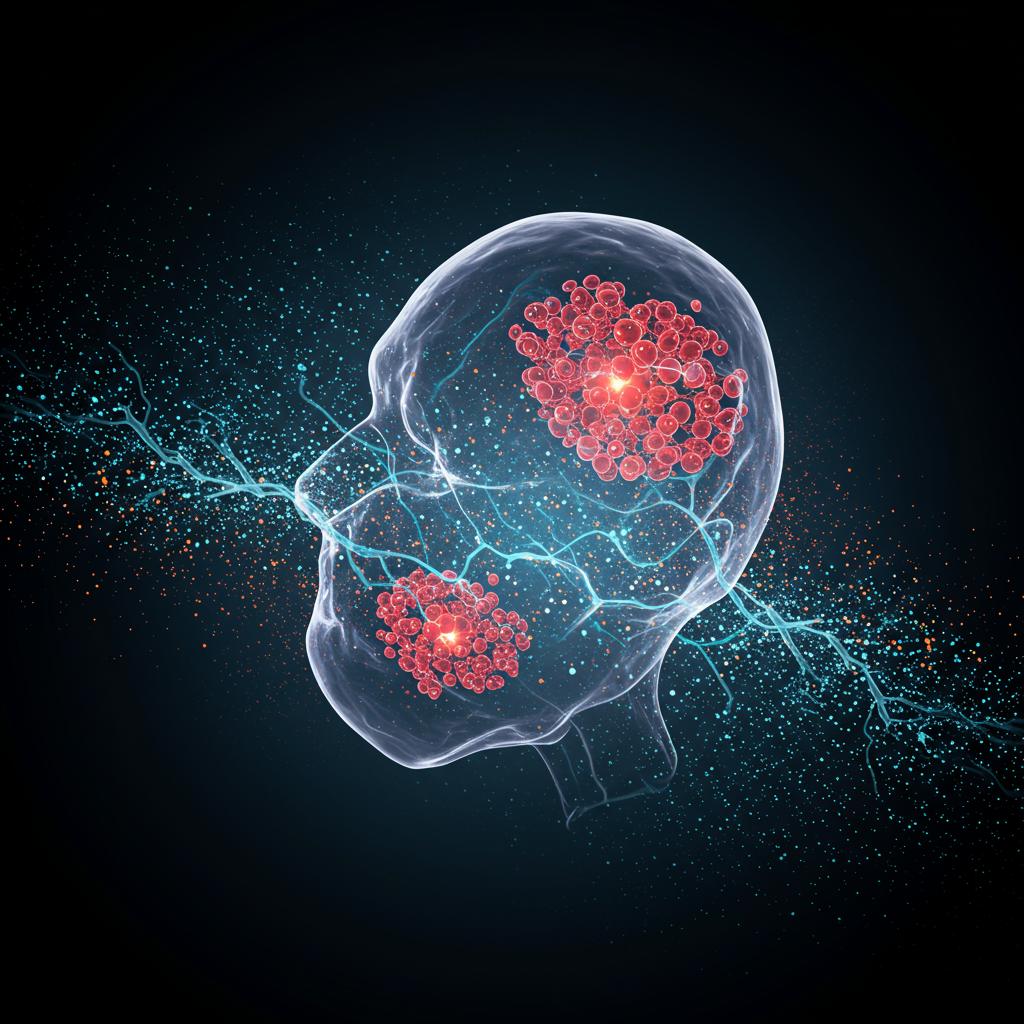
Ever feel like your brain’s a little foggy? For people with diabetes, this isn’t uncommon. High blood sugar over time can actually impact cognitive function, making it harder to think clearly and remember things. This happens because chronic high blood sugar wreaks havoc in several ways: it messes with the energy powerhouses of our brain cells (the mitochondria), sparks inflammation in the brain, disrupts the balance of neurotransmitters (those crucial chemical messengers), and even damages blood vessels, reducing blood flow to the brain. All of these factors can contribute to cognitive impairment, neurodegeneration, a decline in brain plasticity (its ability to adapt and learn), accelerated brain aging, and even dementia.
But there’s a glimmer of hope emerging from an unexpected source: our gut. A hormone called glucagon-like peptide-1 (GLP-1), naturally produced in the gut after we eat, is showing promise in the fight against cognitive decline, especially in diabetes.
GLP-1 isn’t just about digestion; it plays a surprising role in various brain functions. Think of it as a multi-tasker, influencing things like body temperature regulation, blood pressure control, the creation of new brain cells (neurogenesis), protection against brain cell death (neuroprotection), even eye health and energy balance.
Here’s a closer look at what makes GLP-1 so interesting for brain health:
- Combats amyloid plaques and dopamine issues: GLP-1 can influence the clumping of amyloid β protein, a hallmark of Alzheimer’s disease. It also seems to impact dopamine levels, which are critical in Parkinson’s disease.
- Protects against brain damage: Studies in animals have shown that medications that mimic GLP-1 (called GLP-1 receptor agonists, or GLP-1RAs) can reduce the size of brain damage after a stroke. This seems to be because they combat oxidative stress (cell damage from harmful molecules), inflammation, and programmed cell death (apoptosis).
- Boosts learning and memory: These GLP-1RAs might also improve learning and memory in people with diabetes or obesity by enhancing the connections between brain cells (synaptic plasticity). They’ve even been shown to reduce neurodegeneration in the hippocampus, a brain region crucial for memory.
- Neuroprotective beyond diabetes: The benefits of GLP-1RAs aren’t limited to diabetes. Animal studies suggest they offer neuroprotection in other neurodegenerative conditions, such as Parkinson’s and Alzheimer’s disease. In Parkinson’s models, they’ve shown promise in protecting motor function and dopamine-producing neurons. In Alzheimer’s models, they appear to improve several neuropathological features and cognitive functions.
While the research is still ongoing, and more human studies are needed to confirm these findings, GLP-1 and its related medications are proving to be a promising avenue for treating diabetes-related cognitive decline and potentially other neurodegenerative conditions. It’s an exciting area of research, and we can look forward to learning more about how this gut hormone might hold the key to sharper minds.
